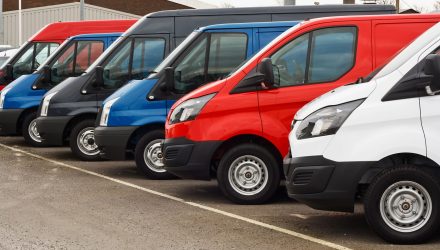More than half (57%) of Gen Z’s want to work in roles that use AI technology, according to new research from Samsara, the pioneer of the Connected Operations™ Platform. The insights reveal that Gen Z could hold the key to keeping Britain’s fleets moving, as fleet managers across the UK face pressures from ongoing driver shortages.
Samsara’s latest research reveals that more than half (58%) of Gen Z’s aged 16-25 years find a driver-focused career appealing, citing flexible working hours (47%), working independently (43%), and the opportunity to avoid an office (40%) as the key benefits.
Technology as a career driver for young talent
However, the findings also reveal that Gen Z expects more from a commercial driving career. The majority clearly desire a role that uses AI technology, and one in four (26%) are more likely to pursue a driving career if it involves emerging technologies such as autonomous vehicles or AI-enabled tools.
For many though, misconceptions about the profession remain a barrier to recruitment, with Gen Z respondents citing long hours (45%) and their perception of “boring” work (28%) as key deterrents.
Yet, these perceptions are at odds with the reality of the modern fleet experience. AI-powered automation and digital tools are already transforming the professional driver experience, by reducing manual admin and giving drivers more flexibility in their role, boosting job satisfaction as a result.
Repositioning drivers as “Fleet Pilots”
The research suggests that, in order to attract and retain the next fleet generation, fleet managers need to reposition driving as a tech-enabled career rather than a traditional manual job. By equipping younger drivers with the latest AI-powered tools, fleets can help inspire a modern workforce of “fleet pilots” ready to keep the country moving.
“We’re seeing a real shift in what motivates Gen Z, a generation that sees technology as second nature rather than a nice-to-have,” said Seth Stanfield, Director, UK, Samsara. “Younger adults want to work in roles where technology empowers them to do meaningful work. When fleets invest in connected tools and automation, they’re not just improving operational efficiency. They are creating space for the fleet pilots of today, providing careers that are defined not only by the road but by data, connectivity, and new kinds of skills.”
Sally Gilson, RHA Policy Lead for Skills and Drivers, said: “Driving technology has evolved at great pace over the last few years and will continue to do so as the industry strives to do its job more efficiently and improve safety on our roads”.
“Recruitment into lorry and coach driving roles remains a key challenge for our sector as demand grows; we’ve revealed that at least 40,000 new lorry drivers a year for the next five years are needed so we’re working hard to best attract young people to get behind the wheel of Britain’s trucks.
“Indeed, this is a key focus of our National Lorry Week campaign where the industry comes together to shine a light on what makes a career in logistics aspirational for young people.”
To learn more about the key role technology can play in modernising fleets and attracting the next generation of drivers, head to Samsara’s blog here.






